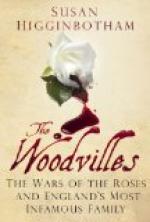Shakespeare knew nothing of the British Empire. He was an islander, and his patriotism was centred on
This precious stone
set in the silver sea,
Which serves it in the
office of a wall,
Or as a moat defensive
to a house,
Against the envy of
less happier lands.
When he speaks of Britons and British he always means the Celtic peoples of the island. Once only he makes a slip. There is a passage in King Lear (IV. vi. 249) where the followers of the King, who in the text of the quarto versions are correctly called ‘the British party’, appear in the folio version as ‘the English party’. Perhaps the quartos contain Shakespeare’s own correction of his own inadvertence; but those of us, and we are many, who have been blamed by northern patriots for the misuse of the word English may claim Shakespeare as a brother in misfortune.
Our critics, at home and abroad, accuse us of arrogance. I doubt if we can prove them wrong; but they do not always understand the nature of English arrogance. It does not commonly take the form of self-assertion. Shakespeare’s casual allusions to our national characteristics are almost all of a kind; they are humorous and depreciatory. Here are some of them. Every holiday fool in England, we learn from Trinculo in The Tempest, would give a piece of silver to see a strange fish, though no one will give a doit to relieve a lame beggar. The English are quarrelsome, Master Slender testifies, at the game of bear-baiting. They are great drinkers, says Iago, ’most potent in potting; your Dane, your German, and your swag-bellied Hollander are nothing to your English’. They are epicures, says Macbeth. They will eat like wolves and fight like devils, says the Constable of France. An English nobleman, according to the Lady of Belmont, can speak no language but his own. An English tailor, according to the porter of Macbeth’s castle, will steal cloth where there is hardly any cloth to be stolen, out of a French hose. The devil, says the clown in All’s Well, has an English name; he is called the Black Prince.
Nothing has been changed in this vein of humorous banter since Shakespeare died. One of the best pieces of Shakespeare criticism ever written is contained in four words of the present Poet Laureate’s Ode for the Tercentenary of Shakespeare, ‘London’s laughter is thine’. The wit of our trenches in this war, especially perhaps among the Cockney and South country regiments, is pure Shakespeare. Falstaff would find himself at home there, and would recognize a brother in Old Bill.




